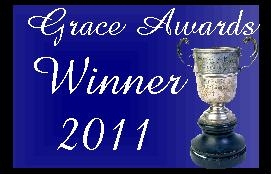 Last week, Women’s Fiction Writers Association hosted Donald Maass, who taught a course on “Inner vs. Outer.” Basically, it was an advanced course on presenting your character’s emotions through an artful blend of both showing and telling. It was tough, and it’s obvious I need more practice, more time playing around with creative ways of showing emotion.
Last week, Women’s Fiction Writers Association hosted Donald Maass, who taught a course on “Inner vs. Outer.” Basically, it was an advanced course on presenting your character’s emotions through an artful blend of both showing and telling. It was tough, and it’s obvious I need more practice, more time playing around with creative ways of showing emotion.
This place, for instance, from my WIP, Corporate Ladder, turned out to be a bit of a failure. Although Don liked the way it was written, he didn’t feel the emotion that should’ve been there. Several folks who read the original passage didn’t even like the way it was written. Sigh.
Here’s the original passage:
Debra took a deep breath, straightened her spine, and left the elevator, half in awe of her surroundings. The ninth floor held the company’s giants, those who had slain their dragons and climbed the carcasses to inhabit the ivory tower of the WB building. The place smelled rich, like the leather interior of a new Porsche, like Cuban cigars and aged brandy and men’s cologne by Calvin Klein. The ambiance was far different from the floors below where underlings still chased their scaly prey with lances raised. Here, the lights were softer, the colors deeper, the carpet thicker. And the receptionist stationed behind a royal oak desk, just beyond the wood-paneled doors of the elevators, had a tilt to her nose that indicated even she was better than those on the lower floors. Superiority by association.
Even though Debra out-ranked her in the overall scheme of the corporate hierarchy, she felt intimidated to the point of wanting to slink, head bowed, to the woman’s desk and offer humble fealty. Instead, she dried her palms down the back of her pin-striped skirt—one that wouldn’t shimmy up her thighs—and marched to the desk with confidence. The woman may be superior to the third floor receptionist, but she wasn’t superior to the associate director of sales and marketing.
By the way, Debra is the associate director of sales and marketing. That caused some confusion, as I should have anticipated. Anyone reading this passage out of context has no idea who’s who. But it didn’t dawn on me to fix it until much later.
For the lesson, I wanted to leave out some of the “telling” in the paragraphs, so I tweaked it a bit:
Debra stepped out of the elevator, Jack climbing off the beanstalk. She padded toward the receptionist’s desk softly, on cat’s paws, her presence on the Musaked floor both invisible and glaring, unwanted and insignificant as a mosquito buzzing the ears. Within these walls were the company’s giants, those who had climbed the carcasses of their slain dragons to inhabit the ivory tower of the WB building. The place smelled rich, like the leather interior of a new Porsche, like Cuban cigars and aged brandy and men’s cologne by Calvin Klein. The ambiance was far different from the stark offices on the floors below where underlings still chased their scaly prey with lances raised. Here, the lights were softer, the colors deeper, the carpet thicker. And the receptionist, stationed behind a royal oak desk, had a tilt to her nose that indicated even she was better than those on the lower floors. Superiority by association.
But Debra out-ranked her in the overall scheme of the corporate hierarchy. She dried her palms down her pin-striped skirt—one that wouldn’t shimmy up her thighs—and brought her shoulders back. The woman may be superior to the third floor receptionist, but she wasn’t superior to the associate director of sales and marketing. Instead of offering humbled fealty, Debra requested audience with Mr. Whitfield, and her voice broke on his name.
Early readers of the first paragraph said it had way to many metaphors in it, so I toned it down some. This is what Don saw:
Debra stepped out of the elevator and padded toward the receptionist’s desk softly, her presence on the Musaked floor both invisible and glaring, unwanted and insignificant as a mosquito buzzing the ears. Within these walls were the company’s giants, those who had climbed the carcasses of their slain dragons to inhabit the ivory tower of the WB building. The place smelled rich, like the leather interior of a new Porsche, like Cuban cigars and aged brandy and men’s cologne by Calvin Klein. The ambiance was far different from the stark offices on the floors below. Here, the lights were softer, the colors deeper, the carpet thicker. And the receptionist, stationed behind a royal oak desk, had a tilt to her nose that indicated even she was better than those on the lower floors. Superiority by association.
But as Director of Sales and Marketing, Debra out-ranked her in the overall scheme of the corporate hierarchy. She dried her palms down her pin-striped skirt—one that wouldn’t shimmy up her thighs as the other had—and brought her shoulders back. The woman may be superior to the third floor receptionist, but she wasn’t superior to her. Instead of offering humbled fealty, Debra requested audience with Mr. Whitfield, and her voice broke on his name.
Don liked the portrayal of “rich,” but his approval stopped there.
I thought I was presenting her emotions–that she felt “both invisible and glaring, unwanted and insignificant”–but that didn’t come across as well as I’d like. One critic wanted evidence of people ignoring her to prove her reasons for feeling that way. I don’t need people to make me feel insignificant when my surroundings intimidate me, was actually drawing from personal experience to illustrate how she felt. But if an author has to explain her writing, then she hasn’t written it well enough.
What I want to show is that “rich” impresses Debra, but at this point in the book, it still intimidates her. And I want to show that she fights off the feelings of intimidation by recognizing, at the very least, that the receptionist is not superior to her–that she has achieved the position of associate director, and on this floor of dragon slayers, she is superior to at least one person, although it’s a small victory.
Maybe in context with the rest of the book thus far, I did manage to present her emotions so these two paragraphs fit in well. But for the sake of this class, they failed.
Sigh. Back to the drawing board.


















Sounds like a great presentation. I would have liked to have listened in.
LikeLike
It was good. And hard!
LikeLike
Thank you for offering one of your writings as the guinea pig for the rest of us, Linda. That takes a lot of confidence as well as courage. We laud you for that alone. And, it is all in context, taken out of the flow, it can be misconstrued. Thank you for the progression and the tips. Always insightful, always helpful and always dolloped with genuine humility. God bless you, Linda, as much as you bless us.
LikeLike
Thank you, Ceci! I don’t think we ever stop learning, at least I don’t. I get better with everything I learn, but I haven’t learned everything yet. 🙂
LikeLike